An important album that has not been available for a few decades is getting the reissue treatment from Craft Recordings and the Jazz Dispensary. Both have announced a vinyl reissue of Blackstone Legacy, the 1971 debut from influential trumpeter Woody Shaw. Showcasing the musician’s virtuosic talents as a bandleader, composer and improviser, this politically charged, postmodern classic also boasts impeccable performances by Gary Bartz, Lenny White, Ron Carter, Bernie Maupin, Clint Houston and George Cables.
The latest release in Jazz Dispensary’s acclaimed Top Shelf series, Blackstone Legacy has been meticulously remastered from the original analog tapes by Kevin Gray at Cohearent Audio and pressed on audiophile-quality 180-gram vinyl at RTI.
The 2-LP album is housed in a gatefold tip-on jacket, featuring faithfully reproduced designs, as well as Nat Hentoff’s original liner notes, which include commentary by Shaw. Long out-of-print, Blackstone Legacy returns to vinyl on September 15 and can be pre-ordered here.
A pioneering figure in modern jazz, Woody Shaw (1944–1989) was revered for his unique harmonic approach and innovative technical abilities on the trumpet. Raised in Newark, NJ, Shaw began performing as a teenager, gaining formative experience as a sideman for the legendary saxophonist Eric Dolphy and spending over a year in Paris, where he honed his craft in clubs across Europe. In the mid-’60s, Shaw returned to the US, where he worked alongside such greats as Horace Silver, McCoy Tyner, Chick Corea, Andrew Hill, Max Roach and Art Blakey. By the turn of the decade, however, Shaw was eager to branch out on his own.
Balancing the past with the future, Shaw sought to honor his bebop roots, while embracing the avant-garde. His debut as a leader, Blackstone Legacy, embodied that stylistic bridge.

Recorded in December 1970 and released the following year on Contemporary Records, the album featured some of the era’s most exciting talents, including funk-jazz icon Gary Bartz (alto and soprano saxophone), veteran bassist Ron Carter and fusion pioneer Lenny White (drums), plus such innovators as Bernie Maupin (tenor saxophone, bass clarinet) and Clint Houston (electric bass), as well as the esteemed keyboardist George Cables, whose work as a composer is also highlighted on two of the LP’s tracks (“Think On Me” and “New World”).
In the album’s liner notes, Shaw spoke to Hentoff about his intentions behind the record. “We’re trying to express what’s happening in the world today as we—a new breed of young musicians—feel it. I mean the different tensions in the world, the ridiculous war in Vietnam, the oppression of poor people in this, a country of such wealth. We’re all also trying to reach a state of spiritual enlightenment in which we’re continually aware of what’s happening but react in a positive way. The music in this album, you see, expresses strength – confidence that we’ll overcome these things.”
Shaw added that the album was dedicated to the era’s youth, as well as to “the freedom of Black people all over the world.” He continued, “The ‘stone’ in the title is the image of strength. I grew up in a ghetto… I’ve seen all of that, and I’ve seen people overcome all of that. This music is meant to be a light of hope, a sound of strength and of coming through.”
The six tracks on Blackstone Legacy are expansive, allowing each of the musicians to embark on heady, improvisational journeys. The album opens with the dynamic, 16-minute-long title track, during which Shaw shines as a leader, as he confidently guides the septet through the energetic composition.
Another highlight is the free-bop “Lost and Found,” which boasts several impressive drum solos by White, as well as the joyful “Boo-Ann’s Grand” (dedicated to Shaw’s wife, Betty Ann). The Cables-penned “New World,” meanwhile, offers phenomenally funky interplay—particularly between the electric pianist and Houston, who delivers plenty of groovy wah-wahs on the bass. The record closes on a reflective note, with a tribute to Shaw’s late mentor, “A Deed for Dolphy.”
In his liner notes for the album, Hentoff extolled, “What is so arresting about the performances… are the extraordinary range of colors; the fascinating dialogues and trialogues among the horns; the brilliantly fused rhythm section; the quite astonishing multiple-time-levels drumming by Lenny White; the sound of Bernie Maupin’s bass clarinet… and the unusually evocative textures George Cables creates on electric piano.” He adds that Blackstone Legacy would be “one of those records people are going to take care of because years hence, it is going to be a milestone, as it were, in a singularly influential career.”
Certainly, the critics agreed—and still do. Reflecting on the album decades later, AllMusic declared it to be “a landmark recording, and a pivot point in the history of post-modern music.” Blackstone Legacy launched a new era for Shaw, who would go on to release more than two dozen albums as a leader, including the Grammy-nominated Rosewood (1978).
Throughout the rest of his life, the prolific trumpeter, flugelhornist and cornetist continued to perform regularly as a sideman, appearing on records by Azar Lawrence, Bobby Hutcherson and Dexter Gordon, among many others. Dubbed “The Last Great Trumpet Innovator” by NPR, Shaw also dedicated much of his time to educating and mentoring others, while his work directly impacted the “Young Lion” generation of horn players, including Terence Blanchard, Wynton Marsalis and Chris Botti—the latter two of whom studied under Shaw in the ’80s.
IShaw was a consistent favorite in the DownBeat Reader’s Poll, earning such awards as Best Trumpeter (1980) and Jazz Album of the Year (Rosewood, 1978), while in 1989, he was inducted posthumously into DownBeat’s Hall of Fame. Perhaps even more importantly, Shaw was universally respected by his peers, heroes and fans—from Dizzy Gillespie (“Woody Shaw is one of the voices of the future”) and Miles Davis (“Now there’s a great trumpet player. He can play different from all of them”) to Wynton Marsalis (“Woody added to the vocabulary of the trumpet. He was very serious, disciplined, and respectful towards jazz”).
Pre-order Blackstone Legacy for $39.98 at Amazon.


























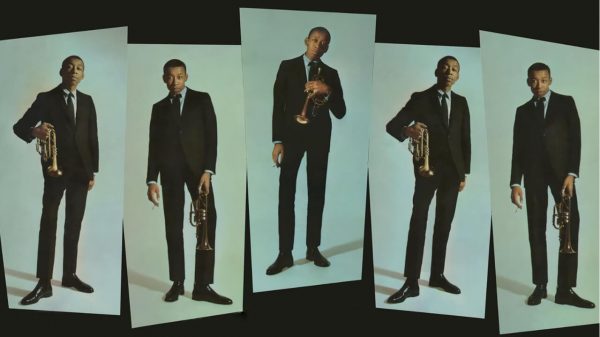

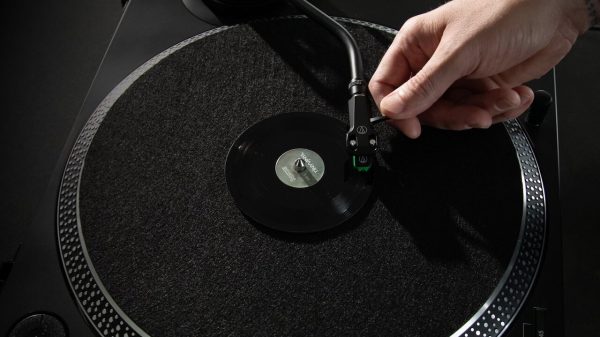

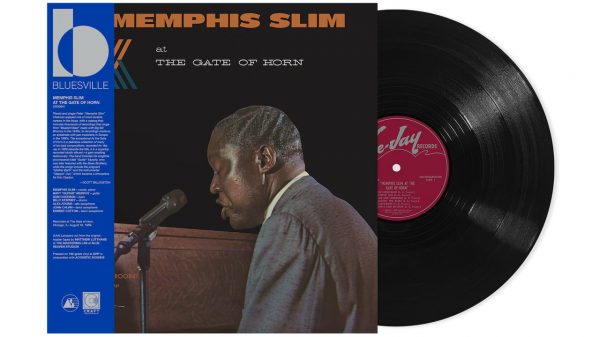
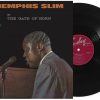
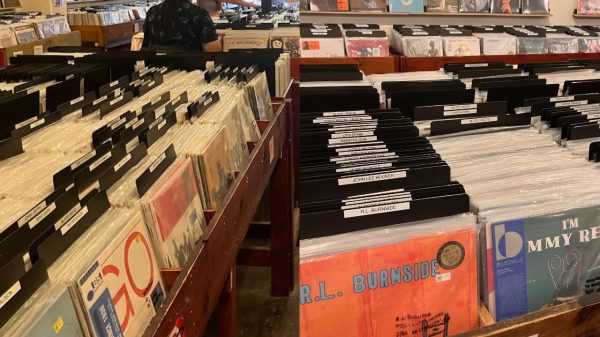

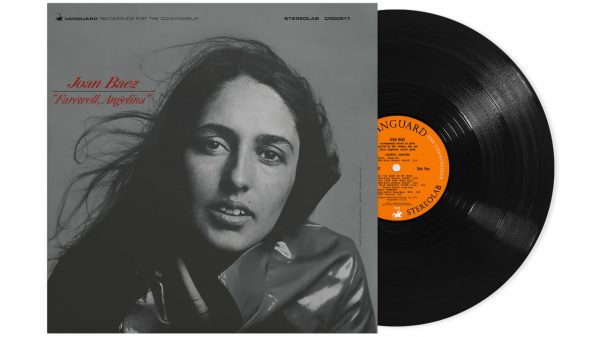



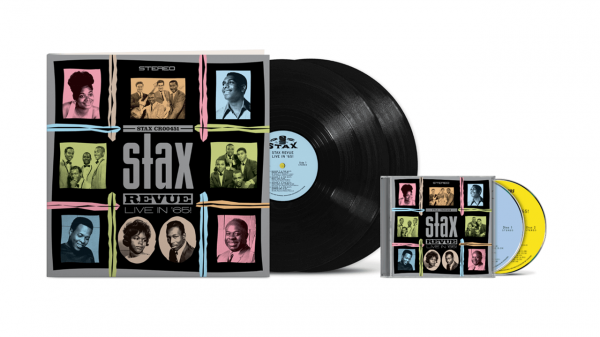
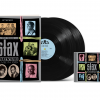
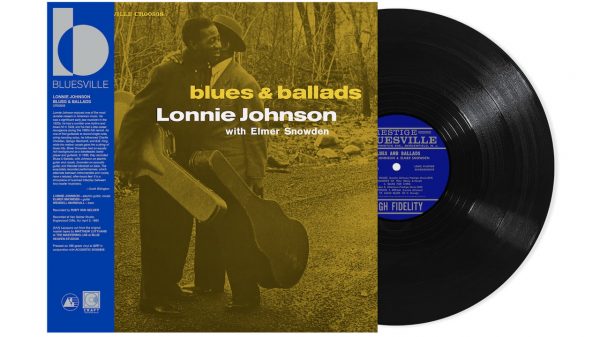
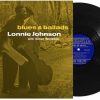











ORT
July 19, 2023 at 4:15 pm
I am listening to the album now. IOW, to see if I like the music or not.
“UGH”…Staccato notes in the first song not long after hitting play. It is far from what I term “music”. Skipping on to “Think On Me”. It started out kinda nice and then back to the rapid fire rambling. “UGH”.
“Lost and Found”. This must surely be a “Jazz” mini-homage to “Innagadadavida”. Ibid.
“New World”. Old BS. If I were “Scotty” on “Star Trek” I might say…”I cannabe responsiball, kipten! The Dilithium Crystals ha’ cracked! She’ll blow anuh minut!!!!”
“On The Street Where You Live”…Shelly Mann and Friends. “Aaaaaaaaaaahhhhh”…As Mr. Satchelmouth would say…”Now you has Jazz!”
Yes. I like Jazz music but tuneless dross is not for me. There was no “lyric” for the musicians to return to after drifting off for a bit of scaling let alone one for them to pay respect to. WTF indeed!
“Blackstone Legacy” is the kind of “jazz” that Beatniks played to spout their retarded “poetry” to an audience of finger snapping pre-hippie (pre-hipsters?) proselytizers. Me?
I’ve grown accustomed to the grace of music night and noon, of talent and style not some creature that sounds, like Alice the Goon…
I can not recall the wise one who said to it Mercer, but Johnny was right in opining, “You can’t whistle a lyric”. And that my dear friends is plainly why we have “Words & Music”.
“Damn! Damn! Damn! Damn!
I’ve grown accustomed to her face.
She almost makes the day begin.
I’ve grown accustomed to the tune that
She whistles night and noon.
Her smiles, her frowns,
Her ups, her downs
Are second nature to me now;
Like breathing out and breathing in.
I was serenely independent and content before we met;
Surely I could always be that way again-
And yet
I’ve grown accustomed to her look;
Accustomed to her voice;
Accustomed to her face.”
Coal pORTer
Ian White
July 20, 2023 at 12:11 am
ORT,
So you’re ordering two copies?
Ian
ORT
July 20, 2023 at 3:46 pm
Hi Ian –
I think I am going to order 5. One to collect dust and another to…collect more dust. The other three are for people that do not like me to ensure that they really do not like me. 😉
I just bought Urethra Franlinz album “Grace”. Her and her voice I enjoy in the same way I enjoy the Blues and Bluegrass music. I get my hour or two “fix” and then I am fine for awhile. 🙂
In contrast, I can listen to Nancy Wilson (NOT the “Heart” one, LOL!) and Beverly Kenney for several hours. And Ella and Joni? Longer. And Frank? Even longer than longer.
It is because I was born and raised “old”.
ORT
Ian White
July 20, 2023 at 6:53 pm
ORT,
You’re not sending me a copy?
🙂
I did pick up 3 used jazz CDs and 2 used jazz records today for $19.03 USD in Princeton.
Lee Morgan, Monk, Ellington, Hawkins, and Evans.
Ian